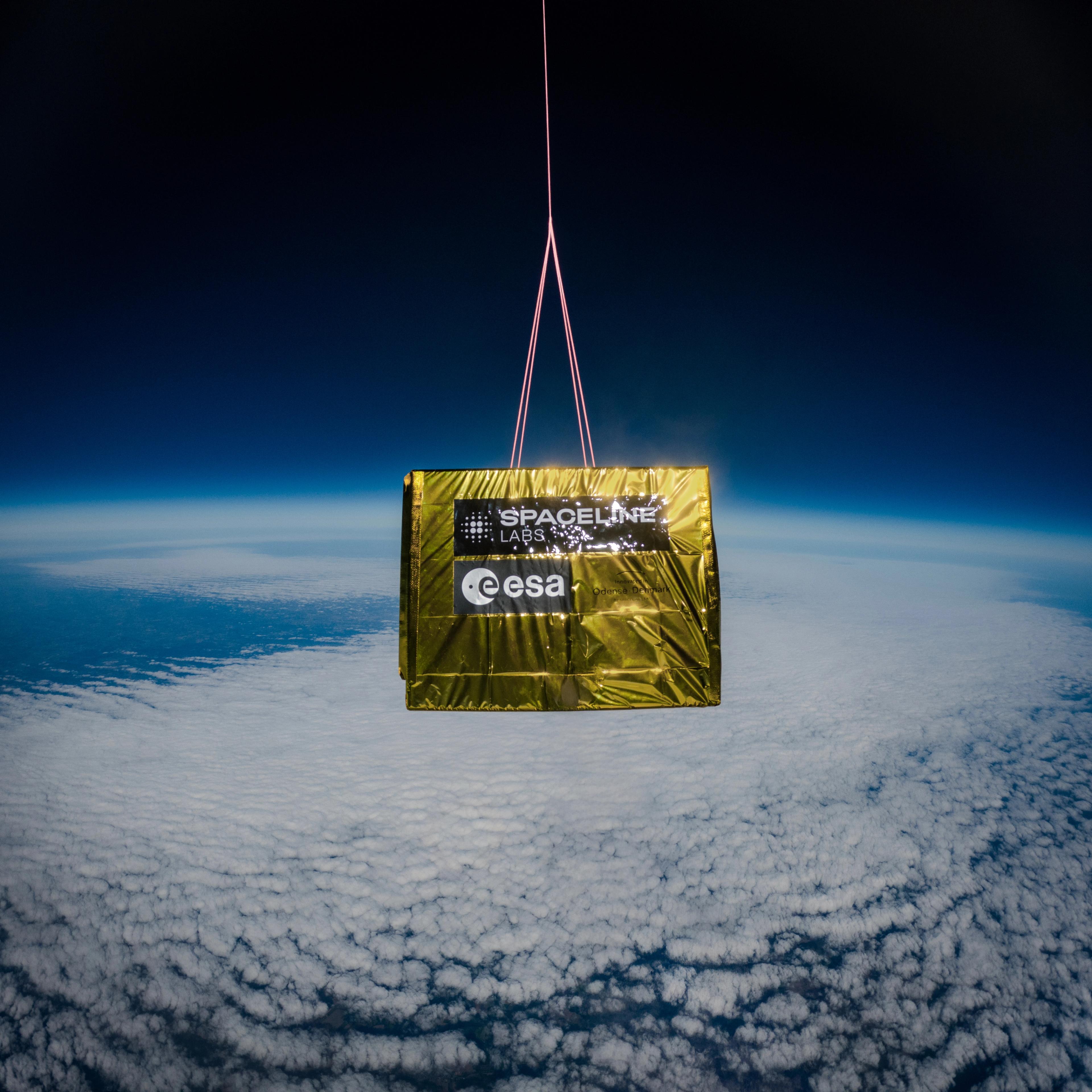Gefion’s First Space-Sector Mission: Weather forecasting for Spaceline Labs’ stratospheric satellites

A new collaboration between Danish Centre for AI Innovation (DCAI) and Spaceline Labs will combine cutting-edge space technology with AI supercomputing, using Gefion to develop state-of-the-art weather forecasting models for stratospheric satellite navigation.
This marks the first time Gefion is being used in the Danish space sector and represents a significant step in merging AI infrastructure with the rapidly growing NewSpace ecosystem.
Connecting... Gefion to Space
Spaceline Labs develops and operates near-space satellites that hover in the stratosphere, capturing high-resolution Earth imagery to support sectors such as critical infrastructure, construction, and environmental monitoring.
Guiding these satellites with precision requires massive volumes of atmospheric data and the ability to iterate models rapidly. To meet this demand, Spaceline Labs is leveraging Gefion’s 1,528 NVIDIA H100 Tensor Core GPUs and low-latency InfiniBand network fabric.
“Effective guidance systems for near-space satellites require detailed, accurate predictions of stratospheric weather,” says Simon Vilms Pedersen, CTO of Spaceline Labs. “Gefion enables us to develop forecasting models tailored to our guidance systems. Better models mean better guidance—and ultimately, better data products. This partnership helps us push both technical and commercial boundaries.”
Building early proof of value
Spaceline Labs is now scaling its weather forecasting models from single-GPU prototypes to multi-GPU deployments on Gefion’s powerful DGX systems (8x H100 GPUs per node). This leap enables faster development and more frequent live testing during stratospheric flights.
“This marks the first time Gefion is powering a project in space—and it truly highlights the versatility of the supercomputer,” says Nadia Carlsten the CEO of DCAI. “From quantum simulations and healthcare to stratospheric satellites, Gefion enables breakthroughs across vastly different domains.”
Delivering Societal Impact
Through faster model development and higher-fidelity guidance systems, the collaboration is expected to unlock access to persistent and high quality Earth Observation data from Spaceline’s space-based assets, with broad societal impact across civil and governmental applications:
● Enhanced civil security and early warning systems, through situational awareness, maritime-domain awareness, and adverse event prediction, such as floodings, landslides and wildfire migration.
● Resource optimisation and decision making, for emergency preparedness and first responders, energy production assets, transportation infrastructure integrity and construction sites.
● Environmental mapping for climate adaptation planning and biodiversity protection.
By shortening the development cycle for guidance and forecasting tools, this partnership helps reinforce Denmark’s role at the forefront of both AI and space innovation.
The agreement aligns with the Danish Agency for Higher Education and Science’s National Space Strategy highlighting AI as a strategic focus area within space research and innovation. It complements the ongoing collaborations between DCAI and leading research institutions. Together, these efforts aim to cultivate national expertise in AI, advanced computing and space technology-skills that are increasingly strategic for Europe’s digital future.
About Spaceline Labs
Spaceline Labs is a Space- and Near-space company headquartered at H.C. Andersen Airport in Denmark. Spaceline Labs designs, manufactures, launches and operates stratospheric "satellites" for Earth Observation. Earth is dynamic. Spaceline Labs is driven by detecting events and changes on ground as they happen, with unmatched accuracy, quality and low-latency, providing a new range of actionable intelligence products.